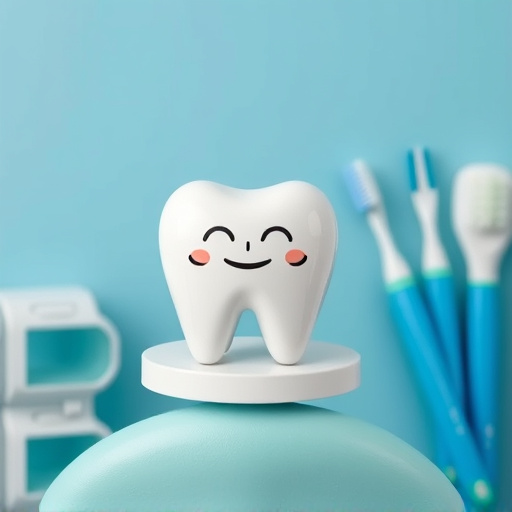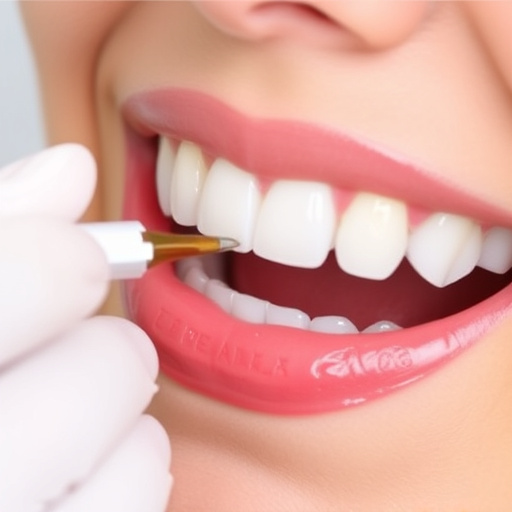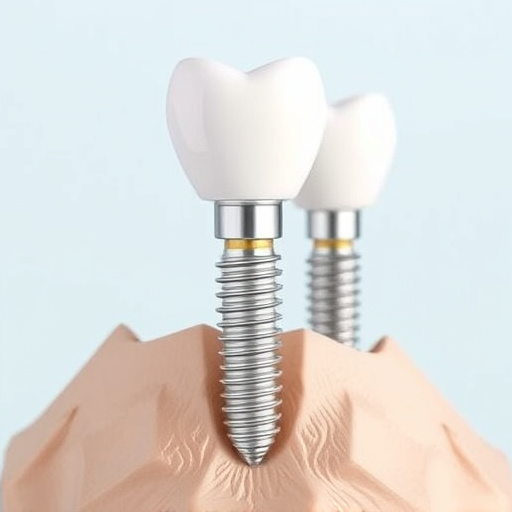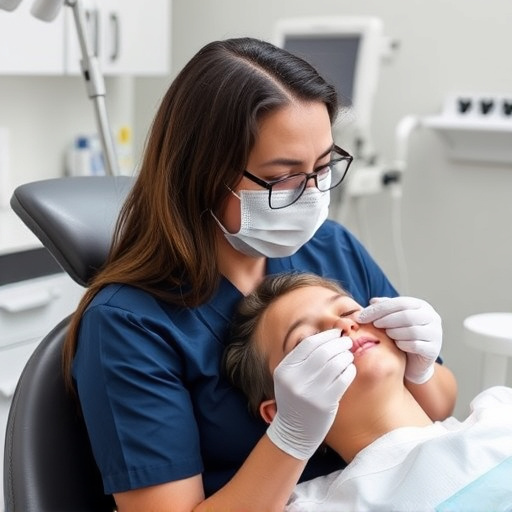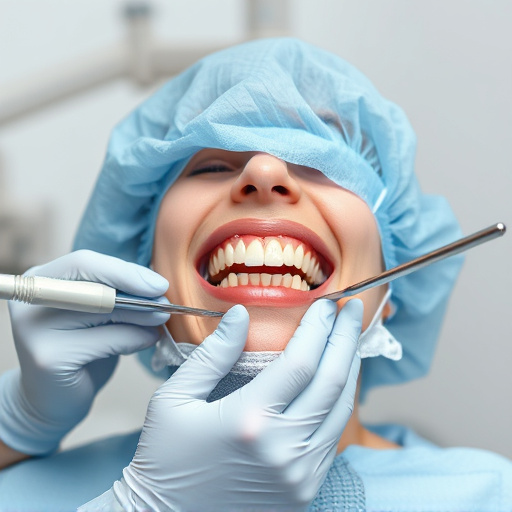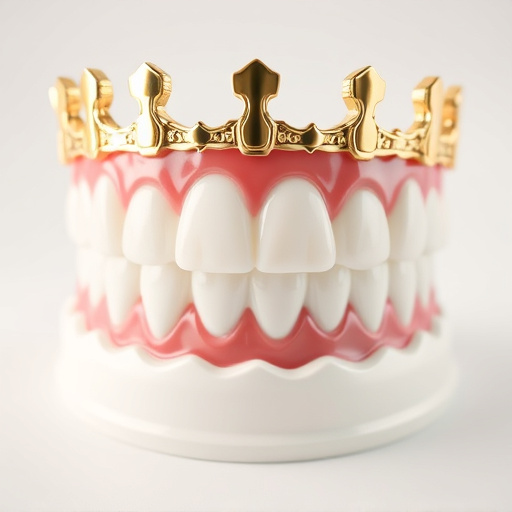Emergency dental care is a critical service for managing acute oral conditions like swelling, bleeding, and injuries. Dentists offer specialized treatments such as abscess cleaning, stitching, and stabilizing broken teeth to provide immediate relief. Prompt attention to tooth infections and severe traumas prevents complications and speeds healing. Regular dental check-ups and good oral hygiene complement emergency care by addressing underlying causes of common symptoms, ensuring long-term oral health and preventing recurring issues.
Are you experiencing severe swelling or bleeding from a dental issue? Emergency dental care is crucial in alleviating these symptoms. This article explores common dental emergencies causing swelling and bleeding, highlighting the vital role of prompt response through emergency dental services. We’ll guide you through effective treatments and long-term solutions to prevent future episodes, emphasizing the importance of access to quality emergency dental care for quick relief and comprehensive management.
- Understanding Swelling and Bleeding: Common Dental Emergencies
- Emergency Dental Care: Rapid Response for Effective Treatment
- Long-Term Solutions: Preventing Future Episodes of Swelling and Bleeding
Understanding Swelling and Bleeding: Common Dental Emergencies
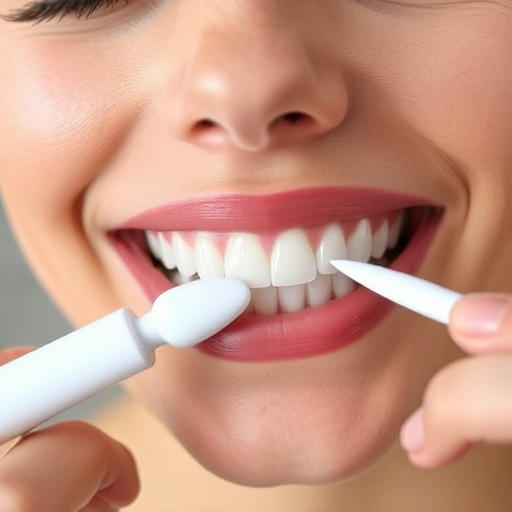
Swelling and bleeding are common symptoms in various dental emergencies, such as toothaches, abscesses, or oral injuries. When a tooth is infected or damaged, the body’s natural response is to send white blood cells to fight off the infection or repair the injury, which can lead to swelling and bleeding. In cases of severe trauma, like a broken jaw or knocked-out tooth, emergency dental care becomes crucial in minimizing these symptoms and preventing further complications.
Seeking immediate attention from a family dentistry or children’s dentistry practice is essential for effective emergency dental care. Dentists are trained to handle such situations, offering quick relief through measures like cleaning and draining abscesses, placing stitches, or stabilising broken teeth and jaws. These interventions not only alleviate discomfort but also play a vital role in promoting healing and restoring oral health.
Emergency Dental Care: Rapid Response for Effective Treatment

Emergency dental care is a critical component of maintaining oral health, offering swift and effective solutions to sudden issues. When dealing with swelling or bleeding, prompt action can make all the difference. Many people underestimate the importance of immediate attention, but seeking emergency dental care ensures that problems like tooth infections, severe injuries, or oral traumas are treated efficiently.
This specialized service is designed to handle a range of dental emergencies, from broken teeth and facial lacerations to acute abscesses. Skilled professionals in this field can provide temporary relief, prevent further complications, and offer long-term solutions. Unlike general dentistry or cosmetic procedures like clear aligners, emergency care focuses on addressing urgent needs, ensuring patients receive the necessary treatment quickly to alleviate pain and promote healing.
Long-Term Solutions: Preventing Future Episodes of Swelling and Bleeding
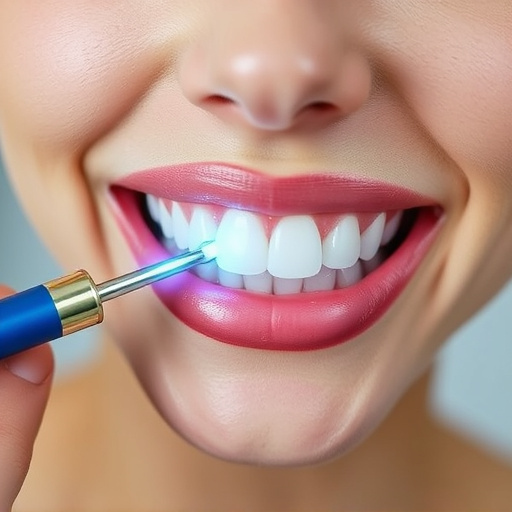
While emergency dental care is essential for immediate relief from swelling and bleeding, it’s also crucial to explore long-term solutions to prevent future episodes. Regular visits to your dentist for comprehensive dental care play a pivotal role in maintaining oral health. These routine check-ups allow for early detection of potential issues like tooth decay or gum disease, which are common causes of swelling and bleeding. By addressing these problems promptly through procedures such as dental fillings or more extensive treatments, you can significantly reduce the likelihood of future episodes.
In addition to regular dental cleanings, maintaining good oral hygiene at home is critical. Brushing twice daily with fluoride toothpaste and flossing once a day help remove plaque buildup, which is the primary contributor to gum inflammation and bleeding. A balanced diet rich in calcium, vitamins, and minerals also strengthens teeth and gums, further enhancing their resilience against swelling and bleeding. Combining these preventive measures with occasional emergency dental care ensures optimal oral health and prevents minor issues from escalating into more serious problems over time.
In conclusion, understanding common dental emergencies like swelling and bleeding is essential. Prompt action through emergency dental care can significantly alleviate these issues. By swiftly addressing the problem, professionals can provide effective treatment, reducing discomfort and potential complications. Additionally, adopting long-term solutions focusing on oral hygiene and regular check-ups helps prevent future episodes, ensuring a healthier smile. For anyone experiencing dental emergencies, prioritizing emergency dental care is crucial for prompt relief and sustained oral health.









